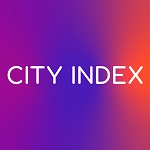- Last updated by
- Richard Berry
Derivatives brokerages are firms that let you speculate on financial markets like stocks, commodities, indices, fixed income and foreign exchange through financial products derived from their pricing via futures, options, CFDs or spread betting. We have ranked and reviewed the best retail derivatives brokers in the UK that are regulated by the FCA.
Derivatives trading via CFDs and spread bets are complex instruments and come with a high risk of losing money rapidly due to leverage. Between 65% and 82% of retail investor accounts lose money when trading CFDs. You should consider whether you understand how CFDs work and whether you can afford to take the high risk of losing your money. This article contains affiliate links which may earn us some form of income if you go on to open an account.
Derivatives brokers reviewed
You can use our comparison table of what we think are the best retail derivatives brokers to compare market access, minimum deposits and the different types of accounts each broker offers.
City Index
Types of derivatives: CFDs, spread betting
City Index Review

Name: City Index
Description: City Index is one of the oldest spread betting and CFD brokers based in the UK. They were founded in 1983 and offer trading in over 13,500 financial markets, to around 126,000 active clients. City Index is currently owned by StoneX, a US brokerage listed on the NASDAQ valued at $1.75bn.
70% of retail investor accounts lose money when trading spread bets and CFDs with this provider.
Why we like them:
City Index offers some of the best trading tools and analysis to help traders perform better. Their unique post-trade analytics and voice brokerage service make it an excellent choice for large and frequent traders.
Pros
- Excellent trading tools
- Post-trade analytics
- Publically listed (part of StoneX)
Cons
- Trading only, no investment account
- Limited options markets
- No direct market access
-
Pricing
(4)
-
Market Access
(4.5)
-
Online Platform
(4)
-
Customer Service
(4.5)
-
Research & Analysis
(4.5)
Overall
4.3Capital.com
Types of derivatives trading: CFDs, spread betting
Capital.com Review

Name: Capital.com
Description: Capital.com was founded in 2016 and is a CFD trading platform and spread betting broker with offices in the UK and around the world. Since then, they have grown to offer over 3,700 tradable assets to 300,000 active monthly traders. Capital.com won “Best Trading App” in our 2023 Awards.
Why we like them:
Capital.com has an easy-to-use and intuitive trading platform and app, that gives access to the most popular financial markets with competitive spreads with the ability to reduce risk by decreasing your leverage.
Pros
- Innovative and intuitive app
- Set your own leverage
- Proprietary technology
Cons
- Trading only, no ISA or SIPP
- No options markets
-
Pricing & Spreads
(4)
-
Market Access
(3.5)
-
Apps & Trading Platform
(4.5)
-
Customer Service
(4.5)
-
Research & Analysis
(3.5)
Overall
4CMC Markets
Types of derivatives: CFDs, spread betting
CMC Markets Review

Name: CMC Markets
Description: CMC Markets is one of the original spread betting and CFD brokers based in the UK. They have been providing forex trading services since 1989 and are now listed on the London Stock Exchange. The broker has over 300,000 active clients trading online and is operated from 13 global offices, with headquarters in The City of London.
67% of retail investor accounts lose money when trading CFDs with this provider
Is CMC Markets legit?
Yes, CMC Markets has always offered, and still does one of the best trading platforms for high-frequency and active traders. It’s a good choice for those who want to trade on tight spreads, with a platform built on exceptional tech.
Pros
- Excellent trading platform
- Good liquidity
- Unique sentiment tools
Cons
- Trading only, no investing account
- Limited smaller cap stocks
-
Pricing
(5)
-
Market Access
(4)
-
Online Platform
(5)
-
Customer Service
(4)
-
Research & Analysis
(5)
Overall
4.6Pepperstone
Types of derivatives: CFDs, spread betting
Pepperstone Review

Name: Pepperstone
Description: Pepperstone were founded in 2010 in Australia and have since then grown to be a global brokerage with international offices and around 400,000 active clients. They offer spread betting and CFDs on 1,200 major market instruments, which means they focus on the most heavily traded assets, mainly forex and indices trading. Of those 900 are shares on the major stocks on international exchanges.
75.6% of retail investor accounts lose money when trading CFDs with this provider.
Why we like them
Pepperstone is a good choice for traders that want to automate their trading strategies through MT4. As far as MT4 brokers they are one of the biggest and best and offers so good EA packages.
Pros
- Tight pricing
- Wide range of MT4 markets
- Pre-built MT4 indicator packages
Cons
- Limited market access
- Only third-party platforms
-
Pricing
(5)
-
Market Access
(3.5)
-
Online Platform
(4)
-
Customer Service
(4)
-
Research & Analysis
(4)
Overall
4.1Saxo Markets
Types of derivatives: Futures, options, CFDs, spread betting
Saxo Markets Review

Name: Saxo Markets
Description: Saxo Markets is one of the largest CFD brokers worldwide and provides direct market access to equities, bonds, forex, futures and options as well as being a major liquidity and infrastructure provider to wealth managers, banks and smaller brokers.
64% of retail investor accounts lose money when trading CFDs with this provider
Is Saxo Markets a good broker?
Yes, Saxo Markets is a good choice for more sophisticated traders. The platform, analysis, and direct market access may be too complicated for beginners. But, for experienced traders its coverage, commissions and research are unrivalled.
Pros
- Direct market access
- Low commissions
- Robust trading platform
Cons
- Seen as a trading platform for professionals
-
Pricing
(4.5)
-
Market Access
(4.5)
-
Online Platform
(5)
-
Customer Service
(4.5)
-
Research & Analysis
(4.5)
Overall
4.6IG
Types of derivatives: CFDs, spread betting
IG Review

Name: IG
Description: Founded in 1974 as Investors Gold Index, then IG Index, now just “IG” is one of the world’s largest margin trading brokers. IG offer CFDs, FX and Spread Betting (in the UK) alongside share trading and prime brokerage to over 313,000 active clients and offers 17,000 tradable markets. IG also recently introduced physical share dealing and smart portfolios for longer-term investors.
69% of retail investor accounts lose money when trading CFDs and spread bets with this provider.
Is IG a good trading platform?
Yes, IG provides an excellent all-round trading and investing brokerage service. IG pioneered online trading and financial spread betting for private clients and remains not only one of the largest online trading platforms, but also one of the best. IG stands out through deep liquidity, high market range and excellent added value such as trading tools and analysis.
Pros
- Vast range of markets
- Excellent liquidity & DMA equities
- Listed on the London Stock Exchange
Cons
- Customer service can be slow
- No DMA futures trading
- Still charges inactivity fee
-
Pricing
(4.5)
-
Market Access
(5)
-
Online Platform
(5)
-
Customer Service
(4)
-
Research & Analysis
(5)
Overall
4.7Different types of derivatives trading
These are the main types of derivatives brokers and how the products differ. To compare derivatives brokers by product, please view the specific pages:
- Futures brokers – derivatives based on future monthly or quarterly prices – traded on exchanges like CME.
- Options brokers – derivatives based on the option, but not the obligation to take delivery of a stock or commodity.
- CFD brokers – derivatives based on the difference between the opening and closing price of a trade (a contract for difference).
- Spread betting brokers – a derivative based on a price per point movement – structured as a bet for UK trades and free of capital gains tax.
- Forex brokers – derivatives based on currency pairs – usually traded OTC at broker or market maker quotes.
Retail versus professional derivatives brokers
There are two different types of derivatives brokers, retail and professional.
Institutional derivatives brokers
Professional derivatives brokers provide hedge funds with direct market access to stock, commodity and futures exchanges around the world. If you cannot be classified as a professional investor with sufficient market knowledge or capital you will not be able to trade with them. Institutional derivatives brokers provide some of the best leverage and lowest commission as their customers trade in large volume and with high frequency.
- Are you a hedge fund? Use our prime broker finder to get connected to discount institutional derivatives brokers.
Retail derivatives broker
These are more online trading platforms where everyday investors can trade CFDs, spread bets, futures and options. These firms are heavily regulated by the FCA as they can offer very high risk products to investors with little or no experience.
Derivatives broker FAQs:
A derivatives broker places orders on behalf of their clients on financial derivatives products like futures, options, CFDs and spread bets on stocks, forex, bonds, commodities and indices.
We have ranked Saxo Markets and Interactive Brokers as two of the best derivatives brokers for professional traders in the UK.
Yes, but as they are high-risk financial products, before you can open an account with a derivatives broker, you need to demonstrate that you understand the risks involved. If you are new to investing, you are better off with an investing account, and only using derivatives to hedge your portfolio.
Yes, you can make money trading derivatives if, as with any investment, you correctly time the market. It’s also important to note that as derivatives are often leverage products, your profits can be amplified by trading on margin. But, more importantly, so can your losses, and you can very quickly lose all of your money. Although if you are a retail trader, you do benefit from negative balance protection, so you will never lose more than your account balance.
Yes. Statistics show that between 65% and 85% of retail clients in the UK that trade derivatives lose money. You can read more the importance of client loss risk warnings here.
The most popular financial products for derivatives traders are:
- Futures
- Options
- CFDs
- Financial spread betting
